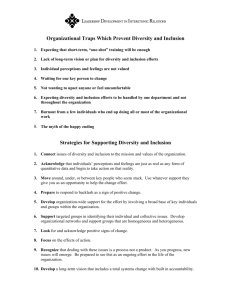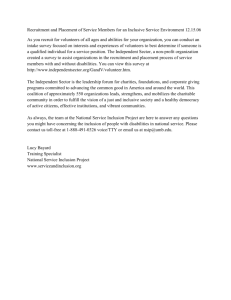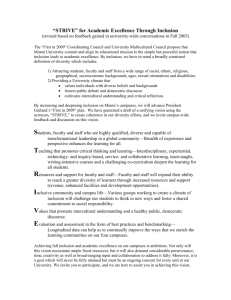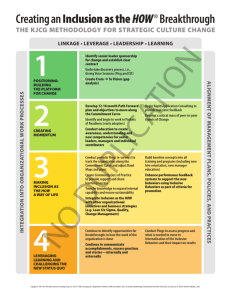Document 10621409
advertisement
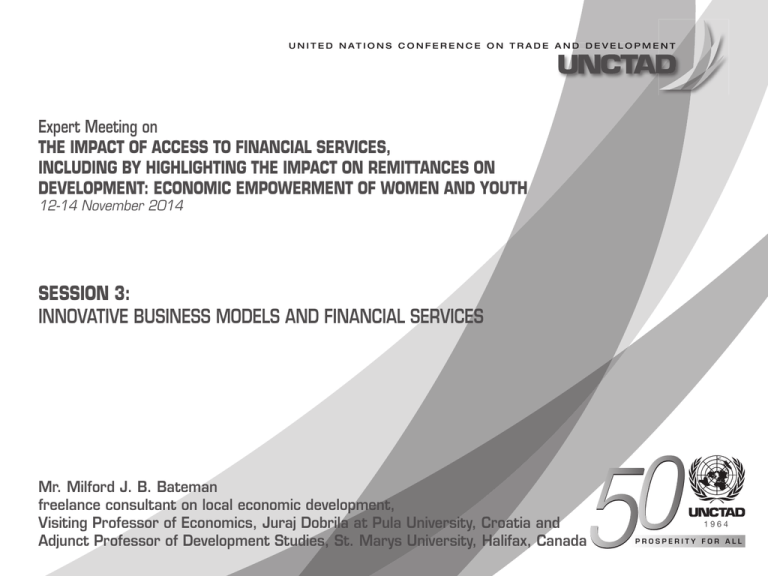
U N I T E D N AT I O N S C O N F E R E N C E O N T R A D E A N D D E V E L O P M E N T Expert Meeting on THE IMPACT OF ACCESS TO FINANCIAL SERVICES, INCLUDING BY HIGHLIGHTING THE IMPACT ON REMITTANCES ON DEVELOPMENT: ECONOMIC EMPOWERMENT OF WOMEN AND YOUTH 12-14 November 2014 SESSION 3: INNOVATIVE BUSINESS MODELS AND FINANCIAL SERVICES 0 5 Mr. Milford J. B. Bateman freelance consultant on local economic development, Visiting Professor of Economics, Juraj Dobrila at Pula University, Croatia and Adjunct Professor of Development Studies, St. Marys University, Halifax, Canada 1964 PROSPERITY FOR ALL The financial inclusion agenda: Be careful what you wish for! Milford Bateman Freelance consultant on local economic development, Visiting Professor of Economics, Juraj Dobrila at Pula University, Croatia and Adjunct Professor of Development Studies, St Marys University, Halifax, Canada Presentation at the "Single-year Expert Meeting on the Impact of Access to Financial Services, Including by Highlighting Remittances on Development: Economic Empowerment of Women and Youth", 12-14 November 2014, UNCTAD, Geneva. Why financial inclusion? • Is it really better than the alternatives? What about the Opportunity cost! • It’s all really a life-support system for the failed microcredit movement…….what is the value of this? • Big banks and credit card companies very much involved in creating the ‘need’ for financial inclusion. After ‘Wall Street 2008’, we must ask Is this wise? • Poor are being seduced into supporting financial inclusion as substitute for REAL change in their favour – so its really a disempowering measure… What should financial inclusion aim to achieve? • Financial inclusion for daily life – for consumer spending and smoothing needs – But NOT to make profits or give life to what David Harvey calls ‘accumulation by dispossession’ strategies of the financial elite • Financial inclusion for development – credit for productivity-raising and community-bettering enterprises, which informal microenterprises and selfemployment ventures are clearly not. – Therefore we must look to how financial inclusion may be designed to ‘include’ productivity-raising formal enterprise projects that require financing Evidence from countries having almost achieved full financial inclusion? • South Africa: a calamity for the country – historic over-indebtedness; lack of SMEs as starved of support; collapse of trust as profiteering explodes; and eventually violence as over-indebtedness drives poor to rebel against authorities • Bosnia: waste of financial resources due to turbulence (including youth enterprises); lack of SME financing; collapse of trust thanks to profiteering and asset stripping; loss of remittances which are used to repay microloans • Latin America: development disaster – even the IDB accepts that financial system and near-full financial inclusion has undermined the continent’s development • Mexico: rise of the informal sector: competition is fierce but has raised interest rates thru cartelisation: Banco Compartamos charges 195% interest rates so that salaries and bonuses are on a par with Wall Street; over-indebtedness is world’s highest, with up to 9-10 microloans per household in poorest regions; collapse coming soon according to analysts; no evidence of any poverty reduction! • Cambodia: almost total channelling into microcredit and an SME famine – a disaster for the country that compares badly with neighbouring Vietnam • Bangladesh: ‘Missing middle’ problem of no SMEs thanks to all credit going to microenterprises; indebtedness a major problem’ in poorest population; remittances paying off failed microcredit projects; no evidence whatsoever of any poverty education thanks to financial inclusion Moving to ‘developmental’ financial inclusion • Need is to locate and establish more developmental financial institutions: – Credit unions for small consumer loans at affordable prices – Financial cooperatives and coop banks if SME working capital financing required – Local state/municipality development banks and social venture capital funds if investment and risk capital required for SMEs – Hybrid credit institutions if dedicated supplier credit required, such as VW’s house bank or Airbus’s SME bank Conclusion • Neoliberal forms of financial inclusion allow old and newly constituted financial elites to identify new client populations which can be targeted and value extracted no matter what the eventual consequences for the wider population (‘accumulation by dispossession’) • Financial inclusion ‘done wrong’ can thus exploit and destroy communities • Extent of dividend and interest payment channelled from poorest communities up to rich elites is simply massive and at historic high – is this what ‘financial inclusion’ is all about perhaps? Banco Compartmos paid dividend of $250 million in 2013, other microcredit banks pay less but still a lot in total! • Financial inclusion only has any real ethical and developmental content if it is construed as meaning that the most vulnerable are empowered to protect themselves from the predations of financial elites and untrammelled market forces • Poor must be encouraged to create a sustainable local economy based on formal ‘real’ enterprises with the potential to create real and lasting value. • Community-based financial institutions are likely to prove useful, as in past history, especially with regard to formal SME development in pro-poor forms, such as cooperatives

